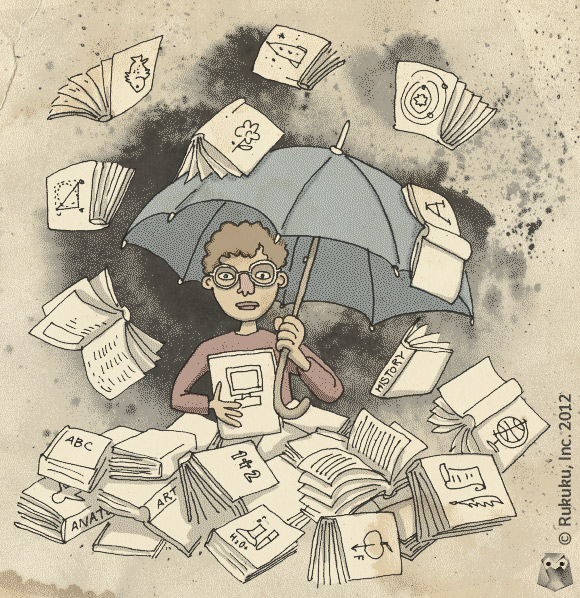Parents and policymakers often voice concerns over the educational system for children in the US. Rarely, though, do we hear much about the educational system for adults. In fact, you may read this and wonder, what educational system for adults? According to a report released earlier this week by the Office of Economic Cooperation and Development (OECD), adults in the US perform significantly weaker than peers in other developed countries across several measures.
One of those measures is literacy. One in six adults in the US have low literacy skills, according to the study, compared to only one in 20 in Japan. Mathematics is another measure. There, one in three adults in the US performs poorly, compared to an average across the countries surveyed of one in five. And the situation is not improving. Adults today scored at or below the levels of adults in the 1990s.
So what gives? The study offers a few ideas. One, initial schooling was not that strong. In other words, they didn’t learn this stuff the first time around. The good news there is that if we fix the school system for kids, then this factor will eventually correct itself. But there are other reasons, too. Socioeconomic correlation was much stronger in the US than in other countries, meaning poorer adults performed significantly worse than their more well-off peers.
Weaker educational skills mean dimmer job prospects, regardless of actual educational attainment. This was truer in the US than in other countries. It also goes beyond employment woes. Adults with low proficiency scores were four times more likely to have a low level of health than those with high scores. That difference was more than double the average across all countries surveyed.
But the news is not all bad. The US does do a good job of rewarding those with strong skills. Basic educational skills are more well-rewarded in the US, in terms of wages, than almost any other country surveyed. That means that the potential for getting a better job with just a little more studying is significant.
Another piece of good news is that most low-skilled workers in the US are still employed. That offers an avenue to reach these workers. Educational opportunities offered through the work place would benefit both the individual and his or her employer. Well, and society, too and also those of us who follow international test score rankings.
We can help. Rukuku offers lots of great content and course development tools as well as an innovative online environment to help adults looking to improve their academic and other skills. For employers, get in touch with us, too. We can set up easily deliverable educational programs for your employees, which will be great for them and great for your company.



